So, what is it that makes Taylor Swift appealing? What is it about her music that drew me in enough to make her the most embarrassing entry on my top 100 (or maybe runner up)?
Before I try to answer those questions, let’s take a quick walk through her career to date.
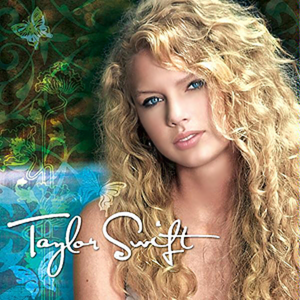 Swift burst on to the country music scene in 2006 with a self-titled debut she wrote and recorded as a fifteen- and sixteen-year old. While it’s definitely a country album, it hints at her crossover appeal — there are a few solid pop hooks present. It also showcases her songwriting talent. She has at least a co-writing credit on every track, and the two best songs on the album, “Our Song” and “Should’ve Said No,” are the two that Taylor has sole writing credit for.
Swift burst on to the country music scene in 2006 with a self-titled debut she wrote and recorded as a fifteen- and sixteen-year old. While it’s definitely a country album, it hints at her crossover appeal — there are a few solid pop hooks present. It also showcases her songwriting talent. She has at least a co-writing credit on every track, and the two best songs on the album, “Our Song” and “Should’ve Said No,” are the two that Taylor has sole writing credit for.
The widespread success of her first album shook up the country-pop world a little bit. Its main audience was teenage girls, a demographic country music has struggled with in the past. Every single went platinum and charted as a top 40 track.
Still, it would’ve been hard to predict how much of a phenomenon that her follow-up would be. Fearless not only softened its country leanings and raced to the top of the charts, but it’s also a vastly superior album to Taylor’s debut.
Taylor successfully portrays herself as an all-American teenager on her sophomore effort. Most of her songs deal with romance, but her combination of tenderness, resolve, and honesty makes Fearless compelling.
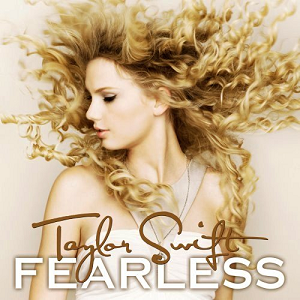 The first half of Fearless is borderline five-star material. “Fearless” is one of the great teen love songs of the past decade. “Fifteen” is a bit preachy coming from an eighteen year old, but emotive. “Love Story” is warm and evocative despite its writing blunders. But my favorite song on Fearless, and my favorite Tay-Tay song, period, is “You Belong With Me.”
The first half of Fearless is borderline five-star material. “Fearless” is one of the great teen love songs of the past decade. “Fifteen” is a bit preachy coming from an eighteen year old, but emotive. “Love Story” is warm and evocative despite its writing blunders. But my favorite song on Fearless, and my favorite Tay-Tay song, period, is “You Belong With Me.”
I wasn’t joking when I picked “You Belong With Me” as one of my twenty-five favorite songs ever a few months ago. love this song. In the interest of keeping this article moving forward, I’m going to postpone my thoughts on this song (and its classic music video) to the end of this article.
Taylor was big in 2009, but officially became America’s darling when she won the award in June for Best Female Video — only to have Kanye West taking her microphone and tell her she didn’t deserve the award because “Beyonce had one of the best videos of all time!”
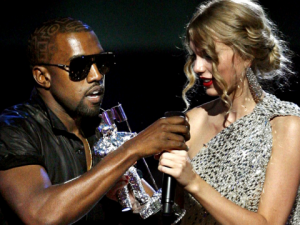 It was probably the biggest music-related cultural moment since the Wardrobe Malfunction in 2004. Everyone immediately loved Taylor and hated Kanye (bigger emphasis on the latter). Kanye was an ass for sure, but I also have difficulty working up much anger for something ultimately so trivial. More on this later in the countdown.
It was probably the biggest music-related cultural moment since the Wardrobe Malfunction in 2004. Everyone immediately loved Taylor and hated Kanye (bigger emphasis on the latter). Kanye was an ass for sure, but I also have difficulty working up much anger for something ultimately so trivial. More on this later in the countdown.
Anyone with an analytical approach to Taylor’s career should have expected her next album to be a disappointment. Fearless is something of an accidental miracle. The craft is solid, but its true key is its Feeling (capital F) of young love and earnest optimism. With everyone singing her praises and showing her nothing but adoration, it was easy to see how she could have felt invincible and tossed out a half-baked disappointment.
So, when Speak Now dropped in 2010, I was absolutely shocked how incredible of an album it is. Taylor not only made the album more personal and ambitious than her previous efforts, with exclusive writing credits on every song, but she massively improved her craft and writing. The aforementioned Feeling wasn’t quite intact, but the greatness of Speak Now is more impressive and revealing of Taylor’s talent. She’s not just lucky and savvy, but she possesses noteworthy writing and performing chops. You can’t create an album like this without a combination of hard work and genuine musical skill.
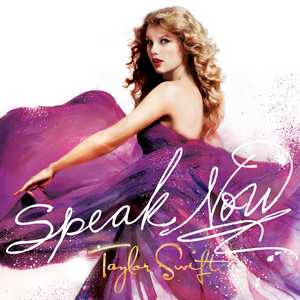 Speak Now is a rare pop album you can play end to end and enjoy every track. It feels almost like a greatest hits album. Pretty much any song could have been a single. There’s a bit of a sprawling feel to the album — it’s long and varied, but consistently good.
Speak Now is a rare pop album you can play end to end and enjoy every track. It feels almost like a greatest hits album. Pretty much any song could have been a single. There’s a bit of a sprawling feel to the album — it’s long and varied, but consistently good.
Among my favorite tracks are “Speak Now,” a cute story about crashing a wedding, and “Dear John,” a brutal takedown of ex-boyfriend John Mayer. “Better than Revenge” features perhaps my favorite Taylor lyric (“She’s not a saint, and she’s not what you think; she’s an actress / She’s better known for the things that she does on the mattress”), while the central line of “Long Live” (“For a moment a band of thieves in ripped up jeans got to rule the world”) is not far behind it.
Perhaps the easiest bit of comparison I can make: The romantic but straightforward “Mine” would have been the third or fourth best song on any of her other albums, but I tally it as the ninth best track on Speak Now.
There are only a couple reasons I mark it at 4.5 stars instead of 5. As Taylor herself wrote every track by herself, the album is occasionally self-indulgent, and not in a fun way. She manages to make her niece’s youth (“Never Grow Up”) and her band’s unity (“Long Live”) all about herself. Her inevitable song about the “imma let you finish” incident, “Innocent,” turns into a patronizing and grandiose proffering of forgiveness rather than an acknowledgement that, you know, it was a dumb awards show.
Still, I’ll be pleasantly surprised if any of her future albums top Speak Now. It’s not quite as iconic as Fearless but it’s the better, more consistent and impressive album.
Around the release of Speak Now, the jokes about her failed relationships began to pile up. Does she date too much? Does she date just so has something to sing about?
Those are interesting questions, but I don’t know and don’t particularly care — it usually makes for good music, so I’ll let her live how she lives without bothering to judge her. I actually consider it a sign of how well her songs connect with their audience that people care about the details so much.
Taylor’s ascension continued over the next couple years. She wrote the headlining song for the soundtrack of The Hunger Games and reeled in a couple dozen awards both big (Grammy) and small (Academy of Country Music).
 Taylor kept up her every-other-year pace for albums in 2012, releasing Red to bigger sales than ever. Lead single “We Are Never Ever Getting Back Together” — a tongue-in-cheek self-parody produced by legend Max Martin, debuted at #1 and became her first song to top Billboard.
Taylor kept up her every-other-year pace for albums in 2012, releasing Red to bigger sales than ever. Lead single “We Are Never Ever Getting Back Together” — a tongue-in-cheek self-parody produced by legend Max Martin, debuted at #1 and became her first song to top Billboard.
The reviews were positive, but not quite as euphoric as those for her previous two albums. A popular refrain was that Taylor had become another generic pop star.
There is certainly evidence here for that claim: teaming with mega-producer Martin on three tracks gave her a glossier, more impersonal sheen than ever before.
But I’d argue that Taylor tries to be Joni more often than she tries to be Britney on her fourth album. There are too many pensive ballads, and most of them rattle on too long.
Red is a little bit more divergent than her previous albums: Catchy bubblegum inanity like “Getting Back Together” is just a few tracks away from “All Too Well,” easily the best ballad Swift has written. “State of Grace” ineffectively evokes arena rock, while Tay-Tay experiments with folksy indie-pop in “The Last Time.”
It makes for a weird, not entirely satisfying listen, in my opinion. The lagging second half of the album doesn’t help, either — there are only a couple of standouts after track six.
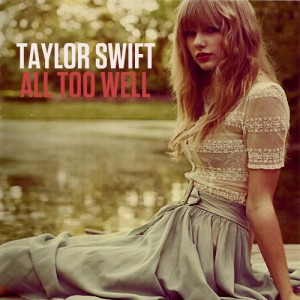
“I forget about you long enough to forget why I needed to” – All Too Well is one of Taylor’s best-written songs
Swift’s writing shows signs of continuing development and maturity, and I suppose her new emphasis on collaboration (along with the Martin tracks, there are two duets) is her trying to push her boundaries — always a good thing. But I’m hoping her next album is once again focused on the Taylor exclusives, with a couple pairings with Liz Rose, who brings out the best in Taylor (“You Belong With Me,” “All Too Well”).
We’re in 2014 now, which means I am expecting a new release some time this year. Fingers crossed that Taylor continues to evolve and impress.
So, back to the question I opened the post with — What is it that makes Taylor Swift appealing?
Well, it starts with her writing. To paraphrase a review of Speak Now in The Village Voice, Swift is a great dramatist even more than a confessional songwriter. She creates scenes and characters that tell emotional stories. Sometimes the songs are strictly narrative — “You Belong With Me,””Speak Now” — and those are usually standouts. But even her more confessional style songs, like “Back to December” and “Stay Stay Stay” suck you in thanks to immersive scene details.
 Her compositions are catchy and melodic, too. She knows her way around a pop hook. The major duds on her album are few, a testament to the craft and effort she puts into each album.
Her compositions are catchy and melodic, too. She knows her way around a pop hook. The major duds on her album are few, a testament to the craft and effort she puts into each album.
Swift also has an innate likability. She gives you the sense she’s telling the truth. It’s a major point of her appeal and identity. Fans love to dish about who each song is about and why they broke up. (Taylor hides clues in the album liner, so it’s not like she discourages this gossip.) It’s because we feel like we’re getting the real Taylor — like we know her. Listening to her music is like listening to a friend tell you a funny or sad story. She’s a natural storyteller and entertainer.
As YouTube videos of live performances made the rounds, criticism mounted that Taylor “can’t sing” — to the point she wrote a song in response (“Mean”). Don’t listen to these complaints — the point is overblown. Taylor may not have the best pipes in pop music, but she makes up for it with how expressive her voice is.
Swift has also been blessed with good timing — country desperately needed a young, universally appealing star. It’s also impressive how she’s stayed pretty much scandal-free in a time where TMZ is considered a legitimate news source. You don’t get meltdowns with Taylor, you get professionalism. For a world-famous 24-year-old who, by all rights, should be in arrested development, she’s shown tremendous discipline and control. This has done a lot to maintain her identity as an all-American young adult.
A couple more thoughts before my postponed remarks on “You Belong With Me:”
-If you listen to enough of her music, you begin to pick up on some Taylor-isms. One of them is flipping the perspective at the end of the song, so that the target reciprocates the feeling of the narrator. I guess this is a desire to give an ending to the stories she tells, but it usually feels weird. Most memorably used in “Speak Now” and “Love Story.”
-Another Taylor-ism: her tricks to capture how ordinary a day feels. Her favorite is listing the day of the week (usually Tuesday, sometimes Wednesday), but she’s tried just about everything: describing the temperature or the lighting, clothing, the actions of her hands. Taylor puts in great pains to convey normalcy.
-Taylor’s a professional, but she’s also still a kid who’s figuring out her craft. The imperfections actually add to the charm of her music; make her feel more “real.” My two favorite examples of this: In “Red,” she starts her chorus comparing her love to different colors, but then runs out of steam following through on this. Love is like… red, blue, dark gray, then… “trying to know somebody you’ve never met.” Another example of execution failing to match a good idea is in “Love Story.” The literary comparisons to her supposedly old-school romance are weak: Romeo and Juliet are way too obvious. Worse: “I was the Scarlet Letter” — have you even read that book, Tay?
-Taylor has a bunch of voices depending on the song. This is part of her strength — her expressive versatility — but some of her voices are better than others. The best: her half-whisper. The worst: her nasally, ironic Ke$ha drawl (see: “22” and “Getting Back Together”).
Alright… as promised, a dissertation on “You Belong With Me”:
(Warning: I’m about to write a thousand words about a Taylor Swift song)
I love “You Belong With Me” for a few reasons. One is that I’m a sucker for the “in love with your best friend” story trope (shoot me an email and ask to read my first young adult novel manuscript, Hungry Heart, if you don’t believe me). But it’s the understated storytelling and vocal performance from Taylor that really knock it out of the park.
There are so many classic lines here which immediately became embedded in the pop culture lexicon (or maybe just my own). “She wears high heels, I wear sneakers / she’s cheer captain and I’m on the bleachers” is just great, efficient songwriting. It conveys the characters and the high school setting so clearly.
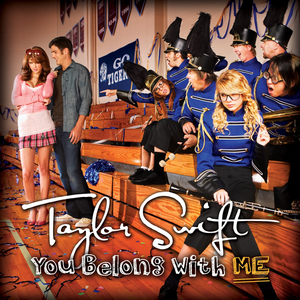 I also think this is Taylor’s best vocal performance, edging “Fifteen” and “The Lucky One.” She’s evocative all through the song, but the amount of longing she puts into the word “me” in the chorus is a marvel.
I also think this is Taylor’s best vocal performance, edging “Fifteen” and “The Lucky One.” She’s evocative all through the song, but the amount of longing she puts into the word “me” in the chorus is a marvel.
Other than the fifteen-second guitar solo, everything here is indispensable (particularly in the first half of the song, during the verses).
Swift co-wrote it with Liz Rose, who teamed with Taylor on a few tracks on her debut and “All Too Well,” also. You can tell this isn’t one of the tracks Swift wrote all by herself — it’s a slightly more professional composition than “Love Story” or “Fearless” from that era, and a bit more heavily produced.
It tells a sweet story and avoids the trap Taylor often falls into of forcing a resolution at the end of the song — the end just kind of lingers on the potent longing Taylor evokes.
As if the song isn’t great enough on its own, the music video is a PERFECT fit for it, just as much of a classic as the song. It’s a little bit cheesy, as virtually all music videos are (especially ones with plots), but I love it to death all the same.
Let’s break it down scene-by-scene. We start with Taylor, a literal girl next door, uglied down in glasses, a t-shirt, and sweatpants, swapping window messages with the popular lover-boy, who is arguing with his girlfriend on the phone.
He says he’s “tired of drama,” which Taylor responds to by writing an “I love you” note — as if having another girl profess her love would minimize his drama. Fortunately, he closes his shades (mid-conversation), just as she’s about to hold up the note.
She shrugs it off, and starts dancing around her bedroom and trying on different outfits — effectively becoming an emblem for just about every type of social outcast stereotype in high school. She’s a goth in one shot, a hippie in another, a geek in another.
Lover-boy looks out of his window again to catch Taylor doing a goofy dance, and laughs: Oh Taylor. So lovable and sweet.
Cut to the next morning. Taylor appears to be dressed as a librarian, reading a book, and waiting for the bus. Lover-boy comes outside, plays with her hair (she swoons), and they chat. Then she breaks her in-scene character by singing about him… even though he’s right there.
As expected, lover-boy’s girlfriend shows up and she’s…. EVIL TAYLOR SWIFT! Just a phenomenal twist. I love how it’s not rubbed in our face too hard, either. You could easily watch the video and not tell they’re the same actress.
Evil Taylor kisses lover-boy, then gives the stink eye to Taylor, who makes a pouty face.
Cut to a football game. Evil Taylor is “cheer captain” and Taylor is “on the bleachers” as a member of the marching band. Lover-boy scores the game-winning touchdown, and Taylor is thrilled. Evil Taylor seems bored, though, doing hand springs.
The shit hits the fan when lover-boy runs to the sideline to hug Evil Taylor… who is flirting with another football player! Lover-boy understandably is upset, but Evil Taylor just tells him off. Taylor shakes her head… Lover-boy deserves better.
Cut to the night of the homecoming dance. Lover-boy inquires via window-note if Taylor is going, but she has to miss it because she is “studying.” He makes a very gentle advance on her: “wish you were” going, he says. She blushes, dreams for a moment, and finds the “I love you” note she wrote previously but never showed him.
And then… she takes off the glasses. I guess all she had to do this whole time was ask her parents to spring for some contacts, and she’d be the beautiful woman Lover-Boy would fall for.
She puts on a white dress — the essence of innocence and maidenhood. The crowds part because, holy crap!, Taylor Swift took off her glasses and put on makeup, and they can’t believe she’s beautiful.
Lover-boy looks up and his jaw drops. He’s just as enamored with lensless Taylor as everyone else is. He makes a move towards her, and she blushes once more.
But wait! Evil Taylor (obviously wearing red) tries to get his attention, but she’s aghast that he’s still upset about the whole implied cheating thing. He pushes her gently aside. “WHAT!?” she mouths.
Taylor reveals the “I love you” note she’d be hiding. He responds by revealing that he had written an identical note to her! (Inadvertently living out the happy ending the song avoids.) Cue the “aww”. She smiles her classic Taylor smile, sings “you belong with me” in his ear, and pulls him in for a weirdly aggressive kiss. And they live happily ever after.
It’s hard for me to say what my favorite thing about this video is. It might be the creepy factor of the bedroom windows facing each other (what’s the over-under on how many times this guy has peeked on her changing?), or the ridiculous notion that Taylor Swift with glasses is somehow plain-looking, or the fact that Taylor plays both the protagonist and the antagonist, or the moments Taylor starts singing along to the lyrics and nobody seems to notice. Or maybe it’s just that the video tells a cute story that fits the song so well.
One last thought about the song before I call this an article: If you can get the music video out of your head, try imagining that this song is from the perspective of a gay kid in the closet secretly in love with his best friend. Holy crap! Doesn’t it work incredibly well?
In all, it’s a great, fun song. Well done, Tay-Tay.


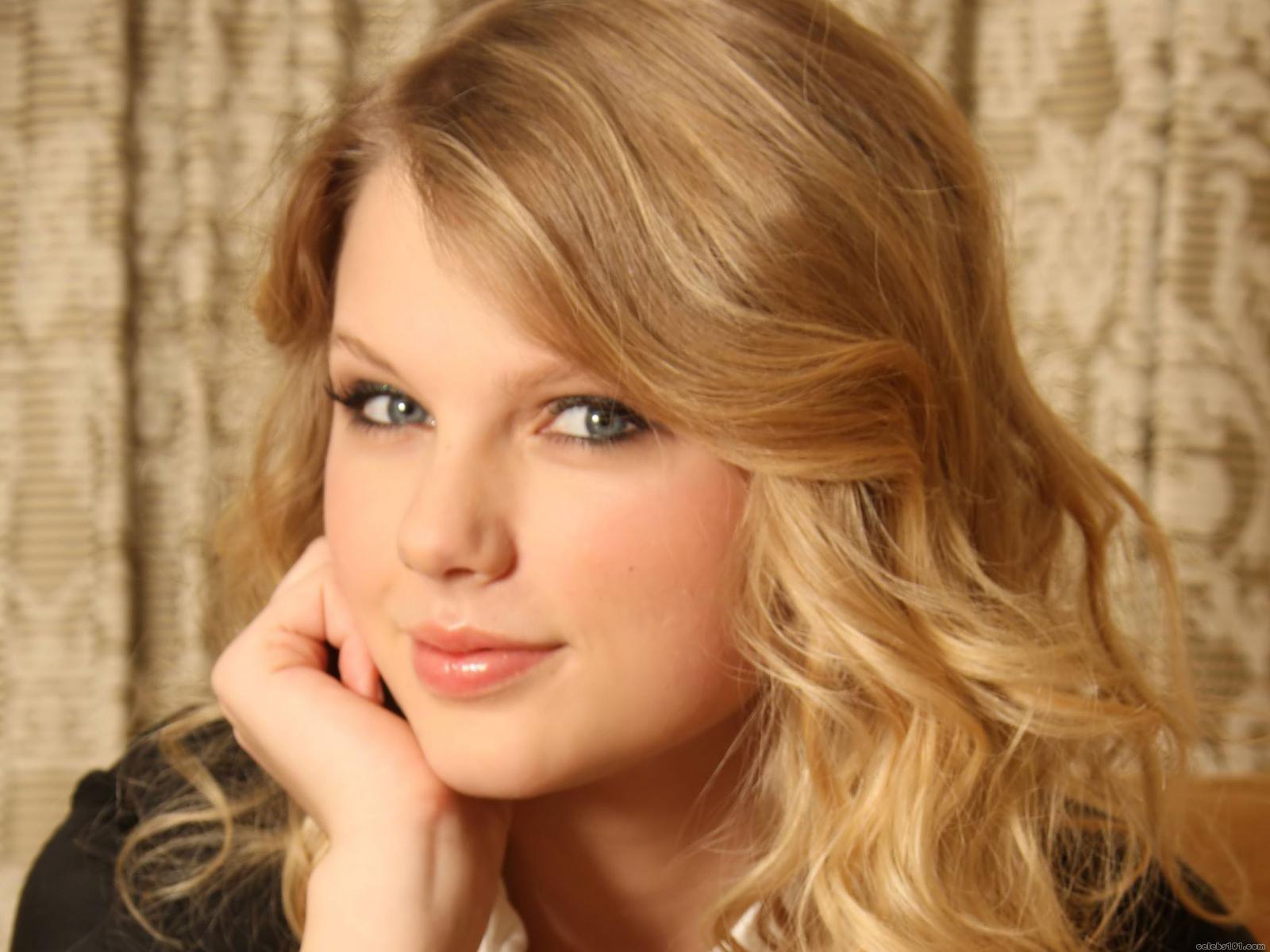

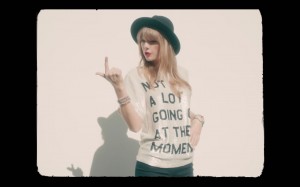

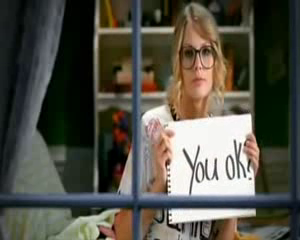
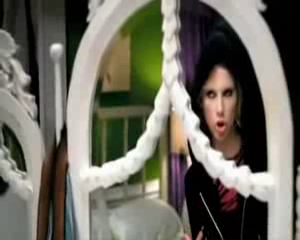
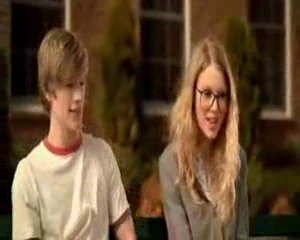
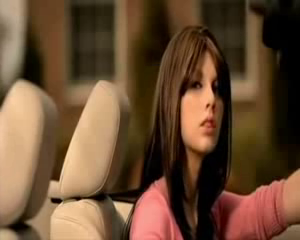
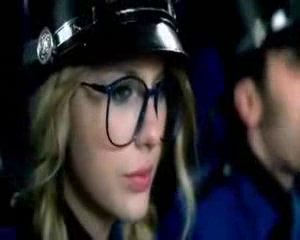
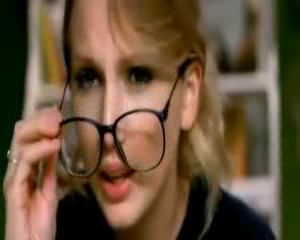
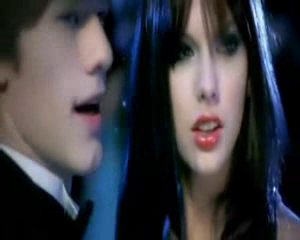
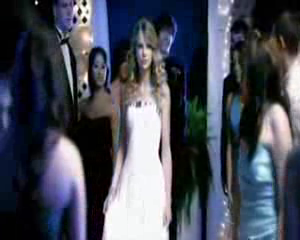



Oh Tay-Tay. I enjoyed the read. Even the video breakdown.
I think the over-under is “every single time”.
Personally, I’ve always been pro-Kanye on the VMAs. “Single Ladies” happened to be one of the best Top 40 songs of its decade and, on top of that, it came packaged with one of the best music videos of all time, as the man himself said. Swift’s video is great—you broke it all down for us—but it’s just not on the same level. Among the many reasons to criticize Kanye for this incident, some would note that Beyoncé won Video of the Year shortly after being beaten by Swift for Female Video of the Year. But Swift wasn’t even nominated for the former award, opening up the possibility that the voting public would’ve chosen her over Beyoncé there as well given the chance. (Then again, Britney Spears’s “Womanizer” was a Video of the Year nominee without being a Female Video of the Year nominee, which raises a number of questions about how they run things at MTV….) Anyway, he said something that needed to be said at the moment it needed to be said, and both their careers have gone up since then, so that’s my story.
But Kanye aside, this is a fantastic look at an artist about whom I previously held no strong opinions. I’ll never get sick of “I Knew You Were Trouble”, I make fun of her for not actually being country, and that’s about the extent of my thoughts. There’s a ton of well argued and fact-based discussion here that really raises her in my esteem, so, job well done.
Thanks, Colton. Kanye might make a future appearance on this list, so I’ll refrain from expanding my thoughts on the Video Awards just yet. Suffice it to say that 1) I think the backlash was WAY too big, 2) …especially considering he was right, like you said, and 3) Kanye’s response was about 1000x more compelling than Taylor’s.